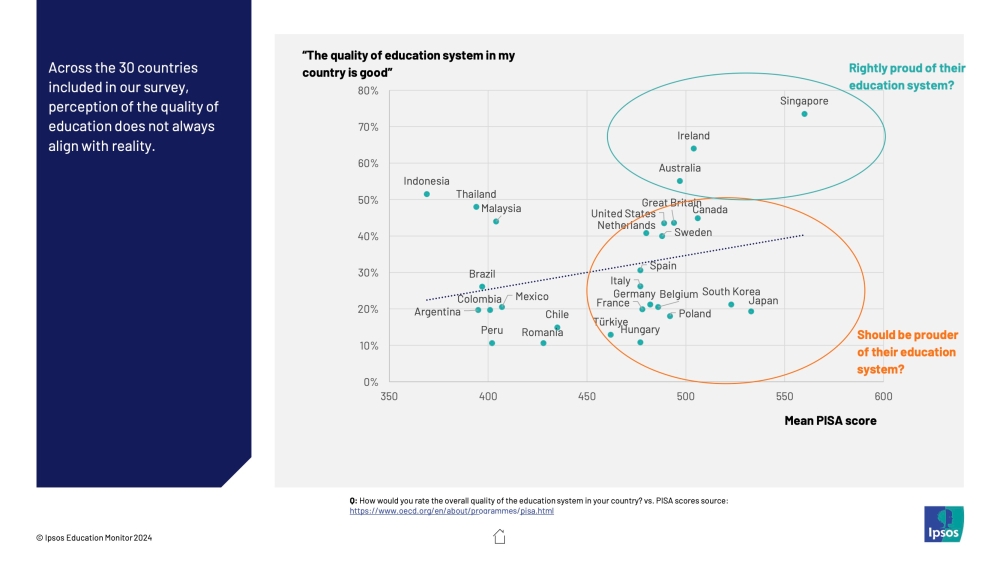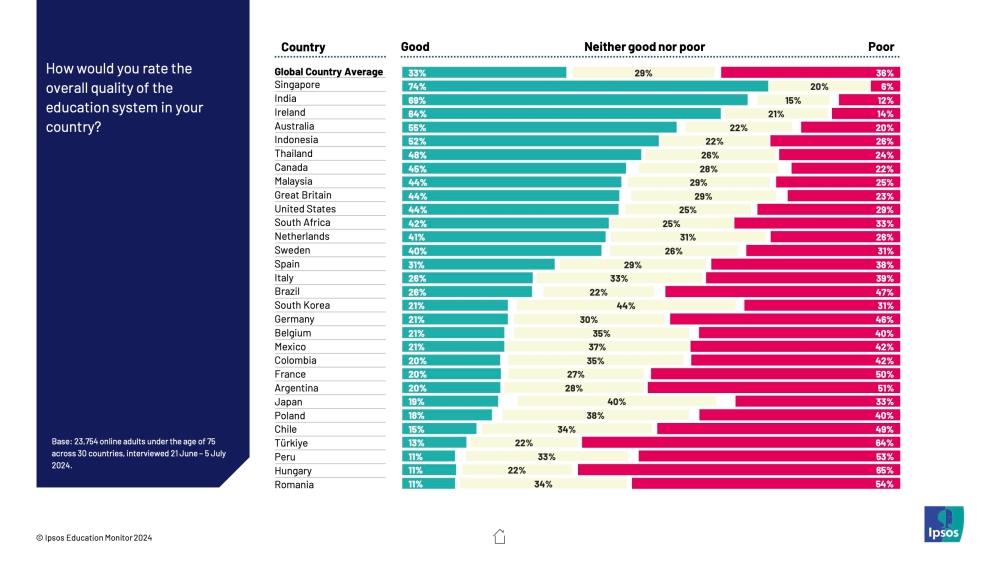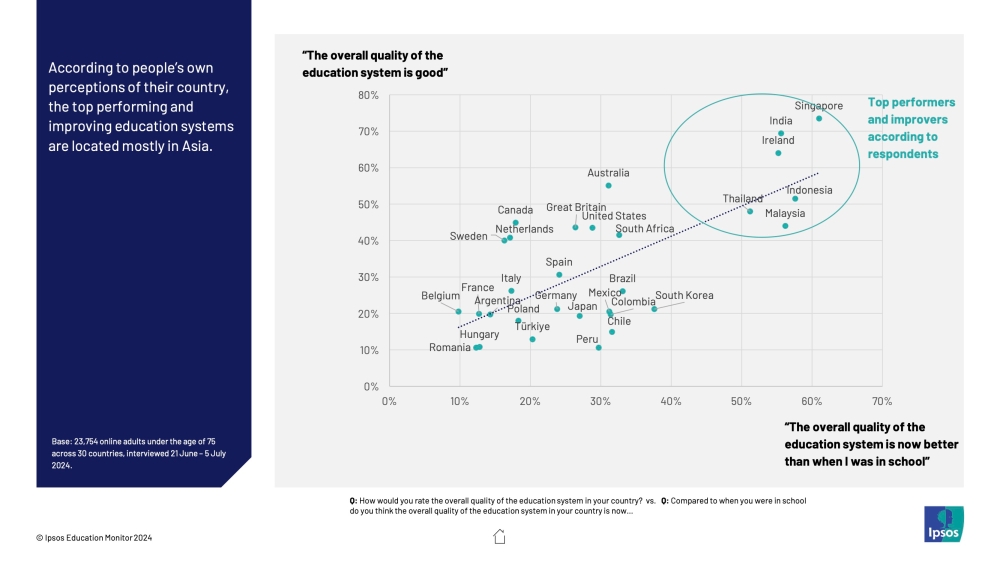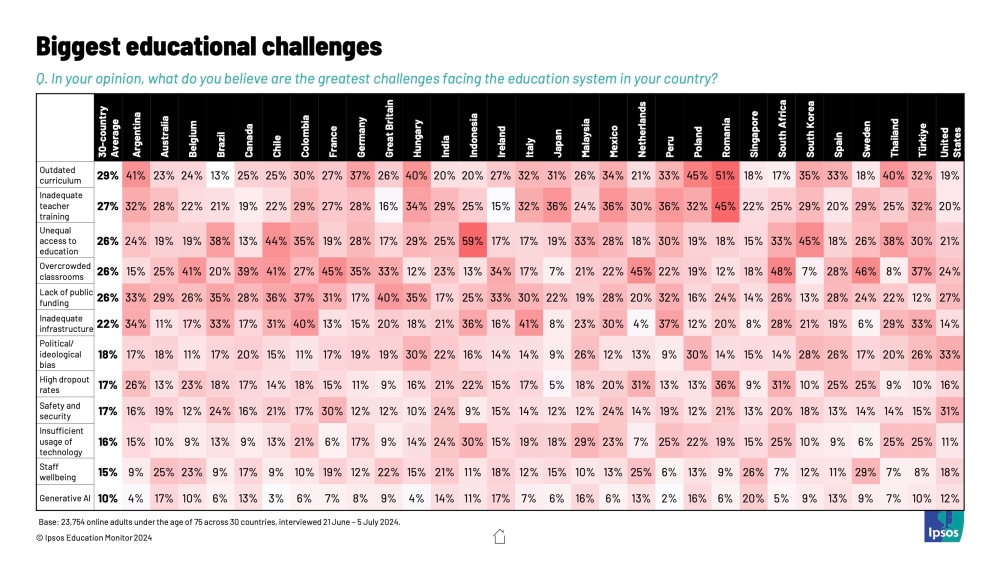- An Ipsos report revealed that 44 per cent of Malaysians rate the education system as "good," exceeding the global average of 33 per cent.
- Challenges identified by Malaysian respondents include unequal access to education, insufficient use of technology, and political or ideological bias in the education system.
- Despite the concerns, 56 per cent of Malaysians believe the quality of education has improved since their school days, ranking Malaysia among the top three countries with this positive perception.
KUALA LUMPUR, Aug 28 — A report by global pollster Ipsos showed that 44 per cent of Malaysian respondents rated our education system as “good”, which was a higher proportion than the global average of 33 per cent.
In the Ipsos Education Monitor 2024 report released yesterday, Malaysian respondents also listed out these challenges to our education system, in this order: unequal access to education, insufficient usage of technology, outdated curriculum, and political or ideological bias.

The survey measured the difference between perception and reality of education in those countries, and a significant quarter of Malaysian respondents perceived our education system as “poor”.
In comparison, Singapore respondents topped the list — with around three quarters (74 per cent) of respondents categorising their education system as “good”.
This was followed by India (69 per cent) and Republic of Ireland (64 per cent).

Ipsos also said that 56 per cent of Malaysian respondents believed that the overall quality of the education system has improved compared to when they were in school.
This placed Malaysia among the top three countries with the highest proportion of those believing so, just behind Singapore (61 per cent) and Indonesia (58 per cent).

Other findings included:
- 67 per cent of Malaysians agreed that the country’s higher education system adequately prepares students for future careers.
- 23 per cent of Malaysians disagreed that most educational institutions have adequate resources and facilities (for example, textbooks, technology, laboratories)
- 63 per cent of Malaysians agreed that the education system in the country contributes to reducing social inequalities

The survey had interviewed 23,754 online adults across 30 countries between June 21 and July 5 this year.
A total of 500 respondents were from Malaysia, aged between 18 and 74.
Recommended reading:



















